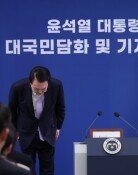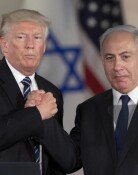Expert: China Gains From Norths Fall
Expert: China Gains From Norths Fall
Posted September. 07, 2006 06:48,
If Kims regime is destroyed, ultimately, China will be the winner. Chinas investment in North Korea is already on the way to make the basis for a buffer state like Tibet. But China will not be transformed into a democratic society as the U.S wishes; instead, there would appear a transitional government organization such as a benevolent dictatorship.
This is the most plausible scenario about the period after the collapse of North Korea suggested by Robert Kaplan, often quoted as an international matters expert who presented an ideological compass for the Bush Administration.
In the August issue of the monthly magazine Atlantic, Kaplan wrote an article named, When North Korea collapses after he visited Japan and Korea last July. This article is based on the numerous interviews with experts, refugees from North Korea and officials of U.S. Army during his visit to Korea.
Collapsing is more dangerous than maintaining the current regime-
Kaplan indicated several signs of ongoing incapacitation of Kims regime contain exorbitant dangers, arguing that, A cautious leader, Kim is now losing his sharpness. His impulsive drive to show off missiles also speaks for the weakness of the regime.
He continues to warn, The more North Korea loses its power, the higher the potential of danger goes up. It is not expectable what a totalitarian regime, condemned to death, is going to do. Unification is completed after a great upheaval as was the case in Vietnam, Germany and Yemen. Militarily, the 1.2 million strong North Korean Army will be a nightmare for the U.S.
Seven Steps to the Collapse of North Korea-
He anticipated North Korea will go through an internal breakdown in seven steps: First phase, drain of resources. Second, failure of maintaining social infrastructure. Third, the emergence of territory governed by individual warlords and local bureaucrats. Forth, Kims attempt to suppress the local powers. Fifth, resistance to central government. Sixth, tearing up of the regime. Seventh, formulation of a new government.
He diagnosed, It seems like North Korea reached the 4th phase in the middle of 90s, but later, it returned to the third phase due to the agricultural and financial backing from the U.S, China and South Korea.
What should be done after the collapse?-
The collapse of North Korea means a biggest stabilizing operation for the U.S. Army, he said. His post-breakdown scenario is below.
The U.S. cannot dispatch troops by its own decision. Under the approval of United Nations, the U.S., Chinese, South Korean and Russian armies will be sent. Although South Korea will take control of the North, it will face the overwhelming influence of China. Ultimately, China will exercise control over the region around the Duman River. Russia wont likely pull out its troops as well.
The best plan is to put North Korea under the guardianship of South Korea, along with the international trusteeship. North and South Korea need some time to be separated functionally, preparing for unification. North Korean military authorities should be incorporated into operational control structure of the combined forces. Otherwise, it may turn into insurgent army.
North Korean missiles-
It was exactly right at the time that the experimental missile launch took place when Kaplan visited Korea. He said, It is a foolish act for the Bush administration to confront the situation militarily. That is exactly what Kim Jong Il wants.
He suggested, If the U.S. copes militarily, North Korea would attack Seoul, causing casualties, a prospect that North Korea might be able to sustain its feeble existence while the U.S. faces worldwide criticism.
The enemy after stabilizing North Korea: Japan.
Kaplan argued, Without disputes, the unified Korea will have its historical enemy, Japan. The relationship between two countries depends on whether the U.S. makes Japan admit its previous war crimes. It is an outlook that in case the U.S. keeps a military alliance with Japan, which does not show any remorse for the history, Korea would move close to China and eventually side with China.
He was also concerned about the long-term stationing of U.S. troops in Korea because of Koreas unstable political climate. He argued it is desirable to post ten thousand U.S. troops in the long term for restraining the emerging military power, Japan. His conclusion is a warning to the U.S. as well as to Korea. It is a little early to say who is going to be an ultimate winner in Iraq, but seemingly, it will be China in case of Korea.
klimt@donga.com







